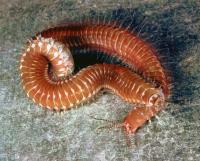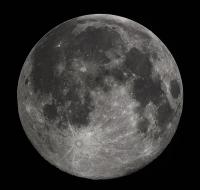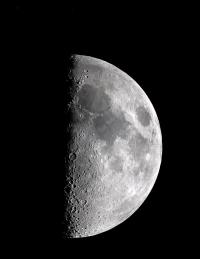Your search for * in time has returned 40 entries
Bora lavoa
noun February (“big birth”) plants get larger and flies multiply. People sense that there are enough resources available.
bookmarkBora tirigi
noun January (“small birth” or new growth): plants start to germinate, there are a lot of flies due to many leaves on the ground, food availability is smaller.
bookmarkgai ram mamaririga
phrase leaves fall off the tree
bookmarkGaibitun gubwengi
noun Sunday (Seventh Day)
bookmarkGaionon gubwengi
noun Saturday (Sixth Day)
bookmarkgarigi
adverb today
bookmarkGubweng gailimana
Friday (Day 5)
bookmarkGubweng gairuana
noun Tuesday (Day 2)
bookmarkGubweng gaitoluna
noun Wednesday (Day 3)
bookmarkGubweng gaivasina
noun Thursday (Day 4)
bookmarkLangisi
noun April: time of planting yam.
bookmarkMalingo
noun 1. New moon, 2. darkness without moonlight
bookmarkMarama
noun moonlight
bookmarkMariri
noun May: (“leaves drying”) yam leaves are drying (but still some are green).
bookmarkMuan gubwengi
noun Monday (First Day)
bookmarkmwa ngal matan bageo
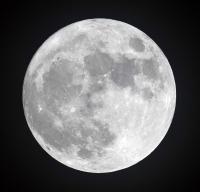
noun Full moon: good time to go diving in dark period, sky is dark (malingo) until about 8 pm, when the full moon appears.
bookmarkninovi
adverb yesterday
bookmarkrani
noun day
bookmarkRara
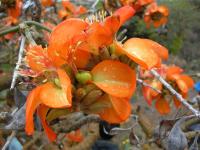
noun Erythrina plant, flower, also serves to mark August and September in the ecological calendar
bookmarkRara
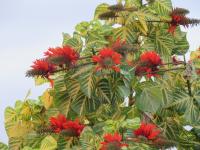
noun Indian coral tree, kind of tree; also serves to mark August and September in the ecological calendar
Example: Photo by jmmaes / iNaturalist, License: CC-BY-NC via inaturalist.org
bookmarkRara memea
noun August: (“Erythrina is red”) Erythrina flowers are in full bloom.
bookmarkTarang lavoa
noun July: yams are ready to harvest.
bookmarkTarang tirigi
noun June: yam leaves fully dry.
bookmarkUdu malalageha
noun October: Udu malalageha (“palolo worm, new life”) Worms are swimming in the water and are being caught; wind blows the smells up to the trees, which makes the plants grow well (and the water in which the worms grow is used as a fertilizer for the crops, and for the children to bathe in to make them healthy).
bookmarkUdu matala
noun November: Udu matala (“palolo worm, goes away”) Plants don’t grow very well, when you eat, you feel hungry again very quickly.
bookmarkUdu rara
noun September: named for the appearance of the red palolo worm "udu" which during this month is red and still in the womb, and the Erythrina flower "rara"
bookmarkUlu gai tavu
noun December: When you look down to the ocean, you can see the waves rolling from a long way from the coast and gently crash against the coast. All trees and the plants in the garden grows well and people feel happy about their crops.
bookmarkvaigogo
adverb tomorrow
bookmarkvaigougo
adverb tomorrow
bookmarkVula barai
noun March: (“moon is not quite full”). Resources available but will soon be gone. Waves are longer, but do not cause destruction. Trees and plants grow well but a small number of leaves fall off the tree (=“gai ram mamaririga”)
bookmarkVula meto / daulato matagu

noun waning gibbous moon (dark moon when the girls are afraid to go outside alone at night because men might grab hold of them and harass them in the dark.)
bookmarkVula mwado mwa rani / maramturani

noun waning crescent moon (the moon remains from the morning throughout the day until evening)
bookmarkVula ngoro rani

noun waxing gibbous moon (moon is round throughout the day)
Example: See also "mwa ngal matan bageo"
bookmarkVula ngoro rani
noun full moon
bookmark

